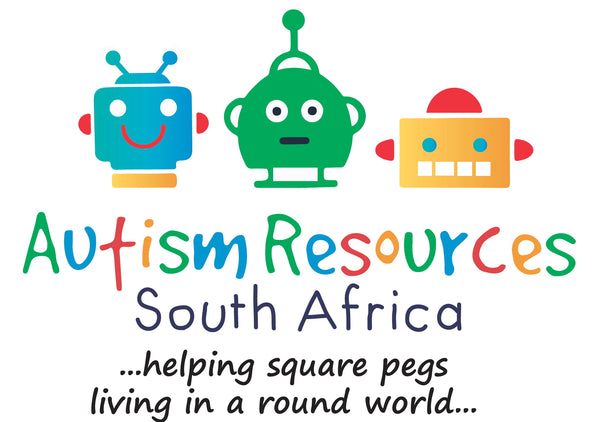As both my kids are verbal, I don’t have much interaction with non-verbal autistic people. Malaika does sometimes become non-verbal when her anxiety is through the roof, but I’ve always wanted to understand the experience of those that are truly non-verbal. So, I started searching the internet for non-verbal autistic bloggers, authors, etc. explaining their experience.
But first, let’s look at the facts.
Understanding non-verbal autism
Approximately 25% - 35% of autistic people are non-verbal. Non-verbal autism is defined as a form of autism characterized by a lack of or limited use of verbal communication. This can include difficulty using words to express needs or desires, speaking in single words or short phrases, and difficulty understanding language.
It's important to note that the term "non-verbal" should not be interpreted too narrowly. Some individuals may have limited verbal abilities, while others may be completely non-verbal. Additionally, some individuals with non-verbal autism may have the capacity to understand spoken language, even if they cannot express themselves verbally. As with any aspect of autism, the presentation of non-verbal autism can vary from person to person.
Non-verbal autism is not an official status, and there is no separate diagnosis for non-verbal autism. This is because there is actually no clear and set defining line between non-verbal and verbal autistic individuals. This is because some non-verbal autistic individuals may develop the ability to use words in a meaningful way but not be able to participate in natural daily conversations. Others may speak a little, but may not be able to use language in a meaningful manner. They may repeat or echo what they heard from others around them or even from TV. Instead of using what they have learned and echo to communicate their wants or needs, they utilize them as some form of self-calming stimulation, like stimming.
Not being able to use spoken language effectively does not mean that the individual will not be able to communicate in other ways. They can communicate through written language, sign language, or assistive digital communication devices.
Will My Non-verbal Child Ever Talk?
Being non-verbal is not necessarily permanent. In a 2013 study by the Center for Autism and Related Disorders in Baltimore, researchers looked at information on 535 children, ages 8 to 17, diagnosed with autism and with severe language delays at age 4. At age 4, their language delays ranged from not speaking at all to using single words or phrases without verbs. They found that a large percentage of these children did go on to acquire language skills. Nearly half (47%) became fluent speakers while 70% learned to speak in simple phrases.
The researchers also wanted to see what factors might predict whether a severely language-delayed child with autism would eventually develop speech. They found that most of the children who did so had higher IQs (assessed with nonverbal tests) and lower social impairment. Somewhat surprisingly, the researchers found a child’s level of repetitive behaviours and restricted interests did not affect the likelihood of language development.
The Non-verbal Experience
One of the most poignant descriptions of the non-verbal experience is in this Youtube video:
"The first time I told anyone anything about myself was when I was 9 years old. Until then, the way I felt must be described as a prison of my thoughts without a door. I could think, but no-one knew. Everyone though I was dumb."
In the Reddit post, “Nonverbal autistic people - why don't you talk?” one of the responses describe their experience as follows:
“… it feels like there’s a hole or a piece missing between the area of my brain that thinks of words and the part of my brain that can move my vocal cords. They simply don’t connect. I make noise when I’m crying or laughing but I can’t make intentional sounds, it’s like trying to talk through your elbow. … I can breathe out loud while moving my lips but it doesn’t make sounds that sound like language.”
In response to the question “Can people with nonverbal autism understand what others are saying? Why can’t they speak?” on Quora, Maddison Fleming, a non-verbal autistic adult, responds:
“Yes, we can 100% understand what others are saying. Just because I don’t talk doesn’t mean that I don’t hear and that I don’t understand...As for why I can’t speak, it’s kinda hard to explain... When I try to talk it’s like other words are pushing their way in. If I’m trying to say a simple sentence like “hi, how are you?” Other words will push their way in, and I’ll probably say something like “Maddison, look at somebody when they’re talking” or “follow the rules Maddison.”
In the Youtube video, “I am a non-speaking Autistic. This is how I found my voice.”, Ben describes it as “I am in a constant battle with my body.”
This is a repeating theme in the description used by non-verbal / non-speaking autistic adults. They describe the incredible amount of effort required to get the words to their mouth – too much effort. Or describe it as similar to having a foreign limb, like an extra arm they have no control over.
To learn more about the experience of non-verbal autistic people, you can also read the Mitchell's Life with Autism Blog, written by a non-verbal teenager. in his blog he captures his journey from high school to college while being non-verbal.
If you are willing to make more of an investment, the book "Ido in Autismland: Climbing Out of Autism’s Silent Prison" by Ido Kedar also come highly recommended. In the book he describes his experience of growing up non-verbal.
In Ido's own words on his blog:
"My name is Ido. I have autism and I can’t talk. But I can think."
